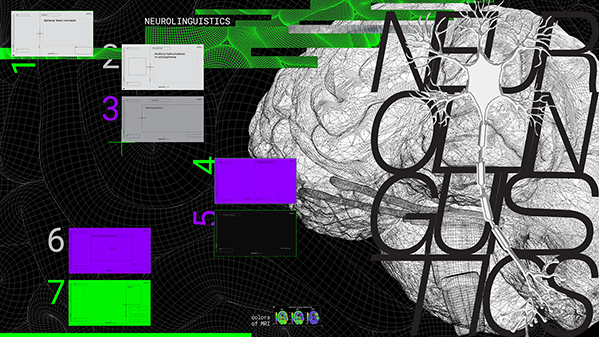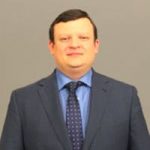Neurolinguistics
About the course
This course introduces the key principles and goals of modern neurolinguistics. Neurolinguistics is a science that incorporates methods and paradigms of linguistics and neuroscience.
This course discusses the main units and organizational principles of the human nervous system that underlie our language capacity. You will learn about the neurophysiological aspects of first and second language learning, discover clinical research in speech, reading and writing disorders, and also find out about speech disorders accompanying various psychiatric conditions. The course includes information on the history of neurolinguistics, modern techniques and methods of neurolinguistic research, and also provides detailed examples of several recent studies in the field.
The outline of the course
Module 1 introduces you to the main ideas and history of neurolinguistics. In this module you will learn how the human brain is organized and which cortical areas provide the basis for our language capacity. It also touches upon neuroevolution and the differences between the human brain and the brains of other mammals.
In Module 2 you will learn about modern methods and techniques of neurolinguistic research, such as EEG, MEG, intracranial EEG, evoked and induced potentials.
Module 3 continues the discussion of neurolinguistic research methods, introducing you to the fMRI method. It also provides examples of three recent neurolinguistic studies, detailing every stage: how the experiments were planned and conducted, and how the data was analysed.
Module 4 discusses how children learn their first and second languages. It also touches upon the differences in the ways monolinguals and bilinguals process linguistic information.
Modules 5 and 6 deal with clinical research in neurolinguistics. In Module 5 you will learn about aphasia. We will discuss the underlying causes of this disorder, its main types and different approaches to their classification and assessment. You will also learn about linguistic models based on aphasia data.
Module 6 continues the topic of clinical research in neurolinguistics. In this module you will learn about auditory hallucinations in schizophrenia, their causes and treatment. This module also discusses brain asymmetry with regards to language and dichotic listening as a means of studying brain asymmetry.
Module 7 is devoted to dyslexia and its comorbidities. This module will introduce you to four different approaches to dyslexia. You will also learn what longitudinal studies can tell us about dyslexia.
Language: Russian, English.
-
Tatiana Chernigovskaya
DSc, Member of Russian Education Academy, Dept. of Theoretical and Experimental Linguistics, Chair of the Division for Convergent Studies in Natural Sciences and Humanities, Head of Laboratory for Cognitive Studies, SPbU -
Kennth Hugdahl
PhD, Professor, Department of Biological and Medical Psychology, University of Bergen & Division of Psychiatry and Department of Radiology, Haukeland University Hospital, Bergen, Norway -
Turid Helland
Professor, Department of Biological and Medical Psychology, University of Bergen, Bergen, Norway -
Kira Gor
Ph.D., Professor, School of Languages, Literatures, and Cultures in the College of Arts and Humanities, University of Maryland, College Park, USA -
Maxim Kireev
DSc, Senior Researcher, Head of Neuroimaging laboratory, N. P. Bechtereva Institute of the Human Brain, Russian Academy of Sciences, Professor, Department of the Problems of Convergence in Natural Sciences and Humanities, SPbU -
Ekaterina Protassova
DSc, Associate Professor, Department of Languages, University of Helsinki, Helsinki, Finland -
Natalia Slioussar
DSc, Associate professor, School of Linguistics, Higher School of Economics, Moscow. Associate Professor, Department of the Problems of Convergence in Natural Sciences and Humanities, SPbU -
Kirill Nourski
MD, PhD, Associate Professor, Department of Neurosurgery The University of Iowa, Iowa City, USA -
Tatiana Petrova
PhD, Associate Professor, Department of Russian as a Foreign Language and Methods of its Teaching, SPbU -
Veronika Prokopenya
PhD, Associate Professor, Department of the Problems of Convergence in Natural Sciences and Humanities,SPbU














